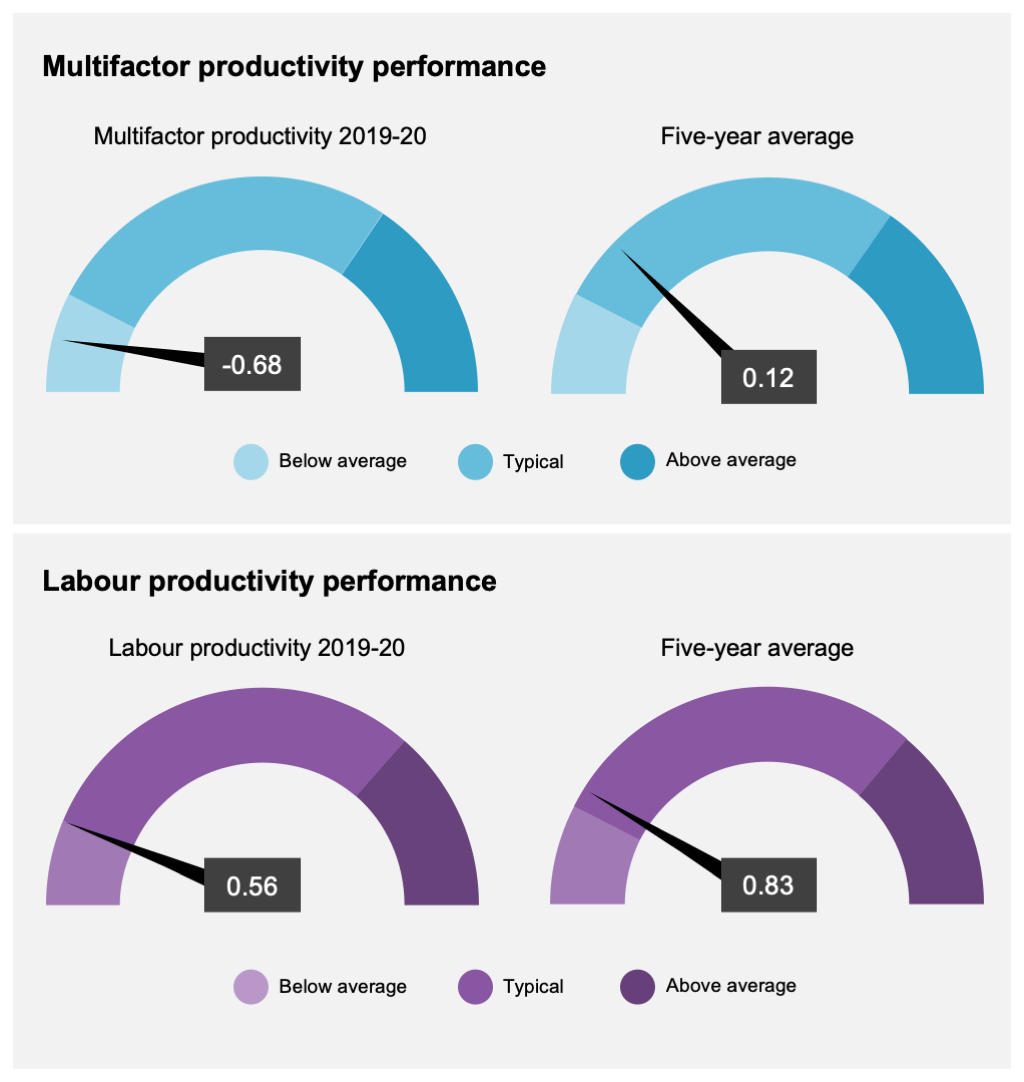Recent developments
PC productivity insights
This productivity insights research was released on 17 June 2021. The 2021 productivity insights unpacks and analyses the latest Australian Bureau of Statistics (ABS) productivity statistics, and details and comments on trends and new developments underlying Australia's recent productivity performance.
Download the research
- PC productivity insights 2021: Recent developments (PDF - 1008 Kb)
- PC productivity insights 2021: Recent developments (Word - 1454 Kb)
The following excel file contains tables of data used to make the charts within this report.
Productivity At A Glance

Productivity at a glance (text version of above image)
Multifactor productivity performance
Multifactor productivity 2019-20 -0.68%
Five year average +0.12%
Labour productivity performance
Labour productivity 2019-20 0.56%
Five year average 0.83%
Sources: Estimates based on: ABS (2020, Australian System of National Accounts, 2019-20, Cat. no. 5204.0, tables 1, 5, 15, 46 and 58); ABS (2020, Estimates of Industry Multifactor Productivity, 2019-20, Cat. no. 5260.0.55.002, tables 1, 6 and 14); ABS (Labour Force, Australia, Detailed, Quarterly, Cat. no. 6291.0.55.003, Apr 2021, table 11); and ABS (unpublished data).
Printed copies

